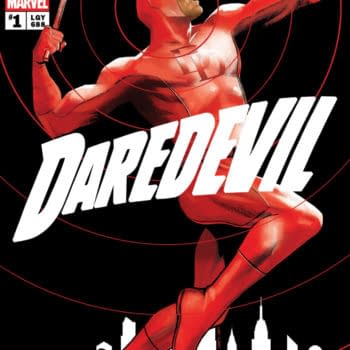Posted in: Comics | Tagged: Brexit, cbldf
CBLDF – Defending Whistleblowers, Challenging Algorithms and Brexit?
On Thursday, the Comic Book Legal Defense Fund held a video presentation regarding its current work and future plans. Last year was a year of change and challenge for the free speech activist charity, regarding allegations of sexual harassment made against its director Charles Brownstein over years. Bleeding Cool was first to report his departure, before his official resignation. However, as a result, the CBLDF saw many partner publishers and organisations pull away from the body, as revelations regarding NDAs that the organisation had made people sign were lifted, board members retired and resigned, as accounts were given and shared.
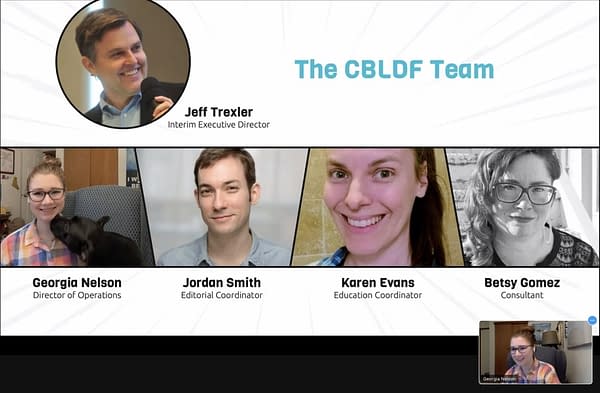
The meeting was attended by Education Director, Karen Evans, Education Consultant, Betsy Gomez, Director of Operations, Georgia Nelson, Editor, Jordan Smith and most prominently Interim Director, Jeff Trexler. Trexler was appointed Interim Director of the CBLDF and it is in this position that he addressed the audience online. He gave his history, not only in comic books, but as one who had implemented ethics policies at other companies and industries, such as fashion, which has been undergoing its own self-examination in recent years over similar issues. That he himself has been involved in helping people bring sexual harassment complaints against employers for twenty years. And that he has helped argue policy reform within both companies and in government.
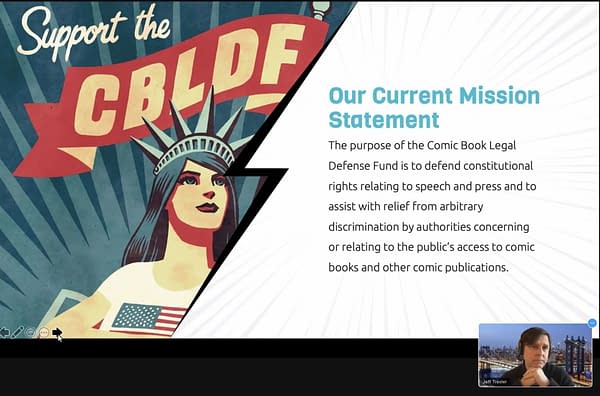
So what is he doing as Interim Director of the CBLDF? And why interim? He stated that he told the organisation that if he was going to help diversify the organisation, he shouldn't be there permanently. His aim is to diversify the pool that the CBLDF will be drawing leadership from. That he will be expanding the CBLDF board, And that the implementation of ethics policies encourages participation at all levels.
And this should be seen in the new work, focus and attention that the CBLDF would be tackling. Principally formed as a free speech organisation to defend publishers, distributors, creators and retailers against free speech issues, the CBLDF is expanding to cover other, related, issues.
Such as enabling and protecting whistleblowers at publishers, helping, protecting and representing people who have been suppressed or fired – which the CBLDF was accused of doing – to speak out.
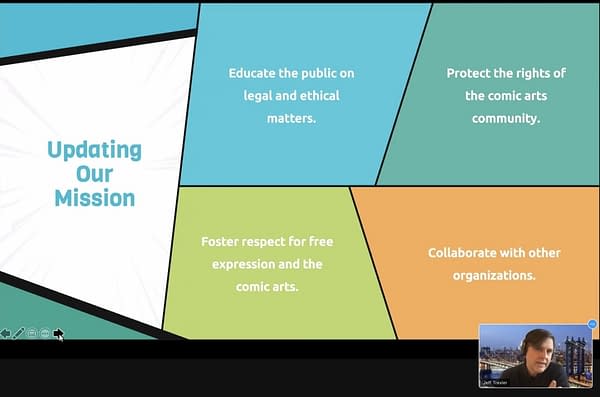
With changing issues of censorship, it could also be the role of the CBLDF to protect creators targeted by social media algorithms and see their artwork mistakenly censored or accounts pulled by Facebook. Something also affecting contract law where algorithms unfairly use social media to screen retailers and creators for access to banks, setting up online stores, or renting properties.
Trexler recognised that the CBLDF has gotten a reputation for defending what many may see as the indefensible. Generally, the CBLDF's free speech activities have been, over recent years, defending comic books with LGBTQ characters or content, from being banned by school libraries. But the headlines they have gained have often been over comic book pornography and the like. But Trexler sees the CBLDF's remit as far more than profanity and sex, regarding freedom of speech. His own first involvement with CBLDF was regarding sales tax issues with comics creators and their art, rather than pure free speech issues. But that such issues are within CBLDF's remit and should be better known.
Trexler recognised that regarding the changes in comic book distribution last year that the comic book retail market is changing, making it harder for smalls shops to exist, increasing legal challenges, supply and distribution changes. He looked at the return of comic book conventions as an area to concentrate on as well, increasing the protection for individual producers and a more ethical environment.
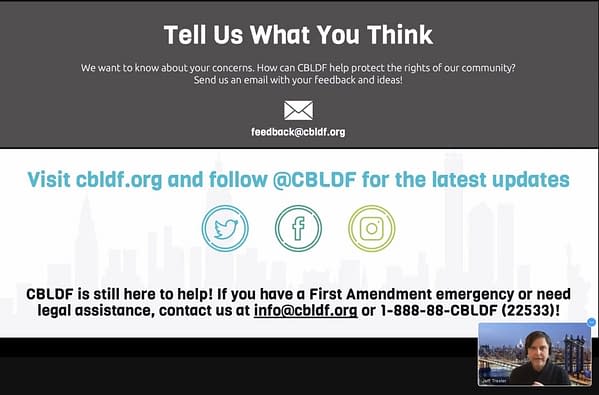
He wants to look at how the retail market is changing, making it harder for smalls shops to exist, and facing new legal challenges and issues regarding supply and distribution changes. That this might even include matters concerning Brexit and international commerce changes.
Trexler also cited the pornographer Hugh Hefner, a major figure in free speech fights in the past, and once who set important precedents in American free speech law, but who harmed the cause as he was seen as having a personal interest in the issues being argued. And that CBLDF wants to maintain the line, defend controversial activities, but not themselves carrying out activities that might need to be defended.
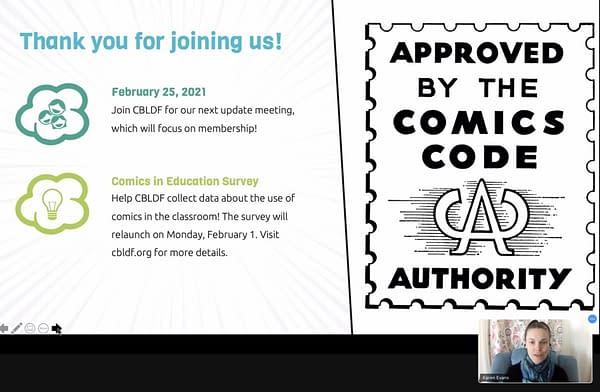
As a reporter, it does seem that the cases that the CBLDF have promoted have focused on pure free speech issues, rather than this expansion of what a legal defence fund could be. It should be interesting to see, going forward, the specific issues they highlight. And if Trexler's own background in ethical business law, and his principles going forward, will deal with people's perceptions after last summer. Their next such video report will be on the 25th of February.








